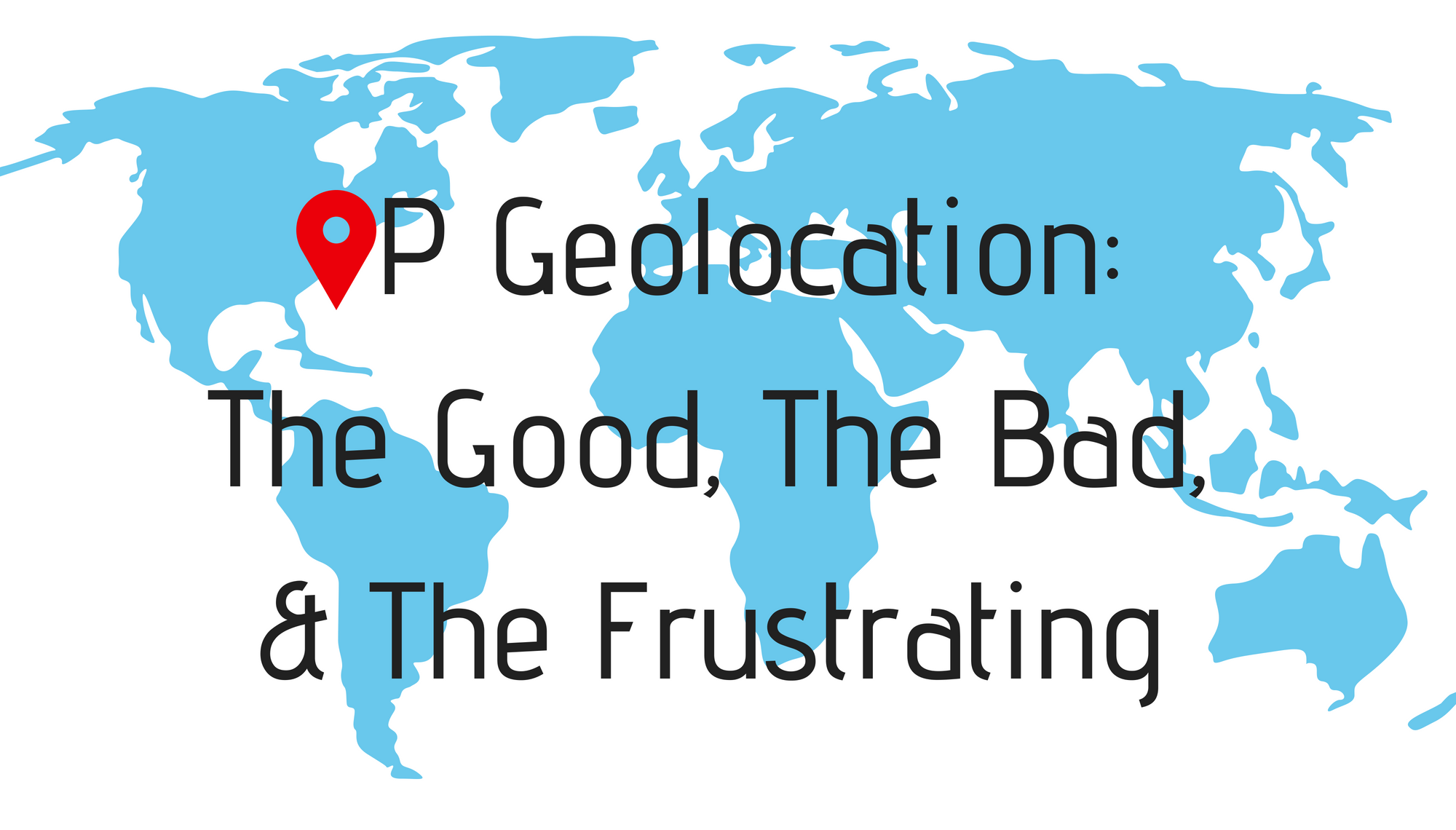
IP Geolocation: The Good, The Bad, & The Frustrating [Archived]
OUT OF DATE?
Here in the Vault, information is published in its final form and then not changed or updated. As a result, some content, specifically links to other pages and other references, may be out-of-date or no longer available.
Here at ARIN, one of the most common topics we hear about from our customers is geolocation of IP addresses. Common concerns include:
-
Hey, I got a new block and I am based in Canada, but the search engine I use thinks I’m in the United States.
-
My video streaming service won’t let me log in because it thinks I’m outside my home country.
-
This online location finder says I’m in another state. How do I fix it?
We must then break the news to them that, unfortunately, there is no master IP geolocation database. IP geolocation is done either via third party sites that provide that data (some for free, some for a cost) or by proprietary systems developed by a content provider for its own use. All of these use ARIN’s Whois data to make their geolocation decisions, and sometimes getting the correct information in Whois will help. Unfortunately, there just isn’t any way to guarantee that will work. We don’t have any control over how third-party sites gather and use our data nor how they arrive at their geolocation decisions.
This begs the question: just how widespread is the problem of incorrect IP geolocation? An academic article1 published in 2017 provides some useful insight into the scope of geolocation accuracy. The study looked specifically at geolocation for routers (not end users) across multiple free/paid IP geolocation services. The basic conclusion is that while country-level IP geolocation is fairly reliable for US-based routers (> 95% accuracy), it can be significantly less reliable for other countries. Moreover, city-level accuracy was found to be far less reliable, with ~75% accuracy being considered the upper bound (or in other words, at best 1 out of 4 are geolocated incorrectly at the city level). In fact, the study specifically “recommend[s] users not to trust city-level accuracy in ARIN regardless of the database used” (emphasis ours).
Which brings us to the takeaways:
-
The good: IP geolocation at the country level is fairly reliable within the US.
-
The bad: It’s less reliable outside the US and not at all reliable at the city level.
-
The frustrating: IP geolocation is inherently a guessing game. It’ll never be perfect; the only question is how often it’ll be wrong.
That being the case, we encourage network operators to work with one another to help solve geolocation problems. There isn’t one silver bullet that will always work, but by asking other network operators for help (for example, on the NANOG mailing list) you have the greatest chance to either reach someone else who’s gone through the same process (and thus may have wisdom to share) or reach the site directly and work with them to correct the geolocation problem.
-
Manaf Gharaibeh, Anant Shah, Bradley Huffaker, Han Zhang, Roya Ensafi, and Christos Papadopoulos. 2017. A Look at Router Geolocation in Public and Commercial Databases. In Proceedings of IMC ’17, London, United Kingdom, November 1–3, 2017, 7 pages. https://doi.org/10.1145/3131365.3131380 ↩︎
OUT OF DATE?
Here in the Vault, information is published in its final form and then not changed or updated. As a result, some content, specifically links to other pages and other references, may be out-of-date or no longer available.
